
Muse & Mastery
Hosted by Aliya Cheyanne, Muse & Mastery is a digital sanctuary for creative thinkers, makers, and seekers. Each episode explores how we can live, create, and evolve in alignment with our purpose.
Muse & Mastery
Sensuality, Spirituality & Creativity ft. Lyvonne Briggs | Ep. 31
Welcome to the Season 4 opener, where revelations await at every turn!
On this episode, I welcome the incredible Lyvonne Briggs to The Prolific Hub Podcast. Lyvonne, an Emmy Award-winner and pleasure-based movement pioneer, shares her vibrant journey of intertwining spirituality with the joy of living in one’s own skin.
Our conversation soars beyond traditional boundaries, and it invites Black women, femmes and beyond, to consider a transformative approach to tapping into their creative genius by recognizing creativity as a divine conduit for truth and purpose, far removed from the relentless grind of productivity.
We hope that this episode leaves you inspired to embrace your own journey of growth and transformation.
Watch this episode on YouTube!
More from Lyvonne:
- Visit lyvonnebriggs.com
- Support Lyvonne on Patreon! (patreon.com/lyvonnebriggs)
- Follow Lyvonne on Instagram & TikTok! (@lyvonnebriggs)
- Order your copy of Sensual Faith!
Theme Music:
She No Dull Beat by Nana Kwabena
Festivities in Belize by RAGE Productions
Enjoy the episode?
- Share it with friends!
- Send a voice note or text!
- Rate & review the podcast!
Follow @museandmasterypod on your favorite SM platforms!
Watch full interviews here on YouTube!
Join me over on Substack!
Check out my favorite brands and snag a discount!
Grab a guided journal here!
Are you a creative, solopreneur or entrepreneur who’d like to be featured on Muse & Mastery? Let me know here!
Hosted by Buzzsprout. See the Buzzsprout - Privacy Policy here.
Hi Prolific family, welcome back to the Prolific Hub podcast, welcome to season four. Oh my gosh, I am so excited to be here, I'm so excited to have you back and I'm so excited and honored for our guest today me to have a conversation about her work and her creative journey and where she is now. And Lyvonne is an Emmy Award winner, an author, a body and sex positive pastor, which is just incredible, is just incredible, a multi-faith womanist healer, and she's leading a pleasure-based movement into righteous, sacred, holistic relationships with our bodies for Black women and femmes, and I'm just so excited to have her on the show. So, without further ado, let's jump into the episode. All right, hello everyone. Welcome back to the Prolific Hub Podcast. I'm your host, Aliya Cheyanne, and I'm so excited today to be joined by Lyvonne Briggs. Hi LaVon.
Lyvonne Briggs:Hi Aaliyah.
Aliya Cheyanne:Hi honey, Thank you so much for having me. Thank you so much for joining. I'm so honored to have you here and I'm so excited to dig into Sensual Faith with you. But first I want to do just a quick introduction. I love for guests to introduce themselves as who they are and who they want to be seen as today, but I also want to share with our audience how I know of your work. So I discovered you.
Aliya Cheyanne:Yeah, I discovered you on social media I feel like someone yeah, yeah, I feel like someone had shared maybe a post of yours, like a few years ago at this point, and I was just immediately so intrigued and so curious, so I've been following you on Instagram ever since then. I love and listen to the Central Faith Podcast. Thank you, and I'm late to the family, but I got my copy.
Lyvonne Briggs:No you're not. You're right on time.
Aliya Cheyanne:I'm right.
Lyvonne Briggs:All things in divine timing.
Aliya Cheyanne:Absolutely, Absolutely. So I've been really enjoying working through central faith, because something I've spoken about on the show recently is just I mean it's in the title coming home to my body and I feel like central faith has been the medicine that I've needed and been looking for, so I've just been really enjoying reading it and I'm so just grateful and honored to spend this time with you to talk more about your creative process and more about central faith.
Aliya Cheyanne:But before we jump into that, I would love to give you a moment to introduce yourself to the audience for folks who for whatever reason, don't know you.
Lyvonne Briggs:For the uninitiated.
Aliya Cheyanne:My name is LaVon.
Lyvonne Briggs:Briggs. Right, my name is Lyvonne Briggs and I'm a baddie for a living. You're welcome. That basically means that I show up in the world as the healer that I am destined to be and I'm living into. I'm an Emmy Award winner, I'm a Queens girl and I'm a joy finder. I am a daughter of the church and the diaspora and I am an author and a podcaster and a content creator and a filmmaker and a beauty lover, and so essentially all of my work points towards healing and liberation for Black women. I am a Black woman spiritual leader who is no longer at war with her body and on a journey to invite other Black women and femmes to do the same.
Aliya Cheyanne:I love that and I'm so excited to speak with you more about all of that. Your work is transforming the lives of so many. It's allowed me to reevaluate and assess my own spirituality and my faith and my relationship with my body. So I'm grateful to have this time with you. So before we dig into other items, I'd love to just talk to you a little bit more, because I've learned through your work that you are a studied expert after someone with the credentials you went to school for this. This is not a game.
Aliya Cheyanne:But you're also deeply committed to you, committed to versions of academia or learning that live outside of school or church through lived experience. But I would love to know how all those things come together and how your faith and your spiritual practices have actually supported you and guided you on your creative journey, like in what ways have they shown up in your work?
Lyvonne Briggs:Really beautiful question, and so I refer to God as God creator. Oladumare, you or some of your listeners might say, universe, divine, light source, energy, universe, like whatever language you want to use, just know that's what I'm conjuring the God of love and light and liberation. And so, for me, I am a church girl through and through. I was born and baptized and confirmed in the Caribbean middle-class church of my childhood, st James Lesbos Episcopal Church in Queens, and so I always had a deep understanding of ritual and liturgy. I was an acolyte or an altar girl, and so I was around candles and bells and incense and frankincense and myrrh.
Lyvonne Briggs:So when I got older and got into sage and Palo Santo, it wasn't that far of a jump. It took me some meandering to get there, and I had a really radical religious conversion experience when I was in college at a Pentecostal church, and it was the first time that I experienced like a demonstrative show of the Holy Spirit through speaking in tongues. Now I'm an Episcopalian child Okay, I don't know anything about speaking in tongues, so the fact that I was speaking in tongues, it was very clear that God wanted me to have this experience that I could not shake, and so, at 22 years old, I have this zeal for the King James Version of the Bible. I don't know many 22-year-olds walking around talking about thee thou this is brethren talking about thee thou. This is right, brethren.
Lyvonne Briggs:But as you can imagine, in reading the Bible I started to have a lot of questions that Bible study and Sunday school were not answering and I was like, if y'all not going to answer my questions, I'm going to go find the people who are so I started discerning my own process to seminary, which I didn't even know was a thing until I went to visit my best friend who was at Duke Divinity School, and so I went to class with him one day and they were talking about theology and the auction block which theology is, the study of God. Right, god, talk in womanist terms, shout out to Dolores Williams. And so I was like wait, people are doing this, people are talking about God and chattel slavery and free like what. It had never been presented to me that way. And so I discerned that I was called to Yale Divinity School and while I was there I studied Christian social ethics and Black women's issues. I got a full view of the historical Christ figure.
Lyvonne Briggs:I learned about Black liberation, theology and womanism, and everything started to come together for me. Some people would say that it crumbled, but for me, decolonizing my Christianity, reclaiming my African spiritual base and practices, having space to heal my bodily trauma, all of that helped me learn how to love myself unapologetically, which is not what most Black religious spaces are encouraging for women, which is odd because most Black churches, their congregations, are at least 85% Black women. Black church leadership is nowhere near 85% Black women, and so I started to see the threads of patriarchy, the illusion of white supremacy, the sexism, the racism, the internalized misogyny, and I started to say you know what God? You called me the pastor, but I'm not your mama's pastor. Okay, I'm not your mama's preacher. I cuss, I twerk, I smoke some weed, right Like what are we doing?
Lyvonne Briggs:And so I turned to social media and podcasting as my pulpit and my platform.
Aliya Cheyanne:And.
Lyvonne Briggs:I was so grateful that me being my authentic self led me to a book deal where I could channel a book that I needed when I was younger, right. Sensual Faith is not just my first book, it's a love letter to a younger version of LaVon, and I think that's why it's being so influential with other Black girls, women and femmes.
Aliya Cheyanne:Yeah, oh, all of that. You said a word and and I resonate with all of that so much. Just even as someone who was a churchgoer once upon a time, I started to question some of the sermons that I would hear, because I would always be like, well, where do I fit into this? Because a lot of this sounds like misogyny, a lot of this sounds like misogynoir, a lot of this sounds like patriarchy, like what?
Aliya Cheyanne:are we actually doing here, and I think that's why just you and your work have been such a breath of fresh air for me and even in some ways healing my own relationship with the faith I grew up in versus the spirituality I'm in now. So thank you for sharing that.
Lyvonne Briggs:Yeah, I'd like to say, of course, my pleasure and you're worthy right. I like to say that there's the religion of our childhood and there is the faith of our womanhood.
Lyvonne Briggs:Like what we were reared in, what we were raised in, didn't always serve us. We grew up and we like wait, I can't have sex before marriage. I'm going to hell. Like wait, I'm going to hate gay people. Like what a marriage. I'm going to hell, like wait, I'm going to hate gay people. Like what are you what? What are you talking? That don't sound right Right.
Aliya Cheyanne:So for Black women who are currently or formerly church, who know that there's got to be something more to it than this.
Lyvonne Briggs:This is the this right.
Lyvonne Briggs:Sensual faith is an invitation for Black women in particular to live their spirituality from a place of pleasure rather than shame. So much of what we've heard from religious pulpits and even family, church and society have been about shrinking ourselves, taming ourselves, making ourselves small, keeping ourselves quiet. And you can't tell me that God is good and God is great, and God is doing a new thing and I'm not an expression of God on the earth. Right, you can't tell me I'm a child of God. But then be like, oh, but everything about you is evil. That don't make no sense, none whatsoever. It sounds like. Right, there's an ulterior motive here. And I'm not drinking the Kool-Aid, no more. So it's liberation in motion for us.
Aliya Cheyanne:Yeah, absolutely so. Thank you for sharing that. I mean you answered the next question, which is what?
Lyvonne Briggs:inspired you to write Central Faith.
Aliya Cheyanne:And you said it's a love letter to a younger version of yourself. And so many young Black women of all ages I want to say young are discovering your work and learning their worthiness.
Lyvonne Briggs:Oh for sure I have moms who buy my book for their teenage daughters and they say I'm going to read it with her I have a 62-year-old woman who was like thank you so much for writing this. So, even though I wrote it for Black women ages 18 to 45, or whatever the marketing plan said, I knew that this was going to transcend age.
Aliya Cheyanne:I knew that it was going to transcend race.
Lyvonne Briggs:I knew that it was going to transcend race. I knew that it was going to transcend gender. I have women who happen to be white talking about. I know you wrote this for Black women, because I did. When you read Sensual Faith, you will know I'm writing to Black church girls, okay, but they're, like I feel so liberated. I have men oh my gosh, who have read my work and they're like thank you for this, Like this is helping me.
Lyvonne Briggs:One understand the plight of Black women but, two know how to hold other men, particularly Black men, accountable right. For what we are also hearing and learning from these pulpits preachers, teachers, so, child, the pastors wasn't going to let me come preach sensual faith, so I had to publish a book to get it to the church.
Aliya Cheyanne:Yeah, but what you're also speaking to is the fact that I don't know like I don't know. Liberating Black women liberates everyone.
Lyvonne Briggs:Babe, absolutely. I have a colleague who says, yeah, that Black women have never wanted a freedom that did not include everyone. Black women have never wanted a freedom that did not include everyone. And this is also why I identify as a womanist, and not a feminist. Because when them white women were creating feminist frameworks, they were not thinking about us. Not at all, not one bit.
Aliya Cheyanne:Not at all, and many of them still don't. Many of them still don't.
Lyvonne Briggs:That's why you know they have to talk about intersectionality right. We are walking. Intersectional beings Black women don't talk about intersectionality. We just exist and that is inherently intersectional. Like shout out to Dr Kimberly Crenshaw for giving us that language. But womanism centers the perspectives, vantage points and experiences of Black women.
Lyvonne Briggs:And the thing is, when Black women are free, everybody else is going to be free. Think about a poor, young, queer, differently abled or disabled Black girl If she can sit on a pew in a church and do what she can do to praise God you don't think we're going to be able to be good If she's good we good right, so that's why it's so important to center the liberation of black girls, women and femmes absolutely.
Aliya Cheyanne:You have such like an uncanny ability to constantly remember and cite people like, yeah, like academics, like civil rights leaders, like ancestors in your work, and I'm, I'm in such admiration of that I'm in such admiration of that I'm in such admiration of that.
Lyvonne Briggs:Well, here's the thing y'all these student loans didn't get here for no reason, okay. So I've always been a lover of words. I'm a reader and I would be remiss if I didn't lift up my dear sister friend, hip hop woman and scholar Ebony Janice Moore. She talks about citing Black women and how citation makes you more credible, because it means that you've read something you took time to understand it and to internalize it and digest it, and now you can share it with others.
Lyvonne Briggs:So, that's why a lot of these podcast bros are failing, because they're not reading. A lot of these people with Twitter fingers are not reading and it shows. You got to study to show thyself approved. That's the scripture, right? It's not just saying memorize the scriptures. Who are the ancestral voices that we need right now? Who are the artists that are preaching to us more than like a misogynistic pastor?
Aliya Cheyanne:right.
Lyvonne Briggs:Who are the Black women whose theories are being stolen by white women right and presented at TED Talks and whatnot, and they're making money off of our labor. Like you got to go to the source, babes, so I model that for folks.
Aliya Cheyanne:Go to the source 1,000% and so beautifully, always. I think that's another thing that really attracted me to your work is just your brilliance and your ability to share and put me on to other brilliant people that I might not have known about.
Lyvonne Briggs:So thank you for that gift, not just for student loans, but the gift, yeah.
Aliya Cheyanne:So a lot of your work around sensual faith and just reading through the book itself centers just embodiment and feeling things in your body. But on the other end of that. I would love to know, like in your own thoughts, like how has disembodiment made life harder? Or like how has this embodiment shown up and, you know, kind of deterred you from your path in different ways or disconnected you from your gut and your intuition. I'm very curious about what that has looked like for you prior to moving into embodiment.
Lyvonne Briggs:Into embodiment yeah. You know, healing my bodily trauma was the biggest thing, you know, because I have experienced so much, which I'm very candid in the book about all of the trials and tribulations I have survived. For a moment, the flashback would come or the sorrow, or the rage or the grief. These are not words I would have used when I was younger, but I know now that that's what was coming up for me, but it feels like suffering in the moment and no one likes to suffer.
Lyvonne Briggs:It's why we tell people to put on a brave face. And people are crying and it's they're there. Don't cry. No, god gave us tear ducts for a reason Like I need to purge and process this and over time, I started to meet people who would give me space to feel the pain, the rage, the grief, and I realized that feeling. It didn't last as long as I thought it would. I just needed to give it space. I needed to see it in order for it to be true and to transmute. So, over time, through talk therapy, through spiritual community, worship experiences, ritual praying at my altar, grieving all of those things together, moving my body, I started to realize that there is no emotion that I cannot alchemize body.
Lyvonne Briggs:I started to realize that there is no emotion that I cannot alchemize Like one of my spiritual gifts is being a master alchemist, and I can, when, when Christians say, oh, you know, you take what the devil meant for evil and God will turn around for your good, like I took the things that should have killed me and I have made it medicine. And so now embodiment is so second nature to me that it's not disembodiment but it's more of a betrayal of my embodiment. Yeah, whereas before I couldn't feel my feelings because it felt like too much. Oh, babes, I feel my feelings for a living now. Yeah, but my intuition, she and I are locked in. Yes, she and I are locked in. So when I don't listen to her and the horror comes, it's not that I don't have someone to blame, because, blame, I hear my pastor, and my well, she is like a pastor, my therapist. I hear Dr Breonna Boyd in my ear saying like you know, don't try to place blame.
Aliya Cheyanne:Like it is what it is. Don't try to, because that's you trying to rationalize it.
Lyvonne Briggs:Just feel what you're feeling. I know what life is like when I listen to my intuition and follow and trust, and I know what life is like when I don't listen to my intuition and so betraying myself. Looks like hearing something and not following through self.
Lyvonne Briggs:looks like hearing something and not following through feeling the dread and going through with something anyway, and then the oh, this is what I was feeling earlier comes up right. So my gift to myself right and compassion and self-compassion is, even when I betray myself and I don't listen to my intuition and something happens, it's not to dwell in the horror but to say to celebrate that. I heard right Like now I got this thing. That I've got to heal child, but let me just know, I heard right and that is the gift and that always brings me back home to myself.
Aliya Cheyanne:Yeah, oh, my goodness, that is so profound it's making me think about. I had done an episode recently of this show where I was talking about something I had gone through earlier in the year and the aftermath of it was just a lot and I realized that I had been suppressing so many of my feelings around it that it just kind of erupted and I allowed myself to feel it and sink into it. I gave myself space to feel the grief. I gave myself space to feel the rage, and that's something that I don't always do, and exactly what you said.
Aliya Cheyanne:I realized that what was driving a lot of that is because I had betrayed my intuition and I had betrayed my gut. I knew maybe I should not have gone through with something. I knew I should not have done it but I betrayed myself. I did it anyway and I had to allow myself to move through the emotions of that and I think what you said just resonated and I love the perspective shift around disembodiment versus betraying your embodiment. You know, betraying yourself.
Lyvonne Briggs:So that's just such powerful language, so thank you for sharing that, jem, yes, you're worthy, and I do want to offer this because I don't want listeners to get stuck in the harm of the betrayal right, like, because then it becomes self-blame. As deep as the betrayal goes is as wide as the grace flows.
Aliya Cheyanne:Oh, that was good. Come on, Spirit.
Lyvonne Briggs:That was good, as deep as the betrayal goes is as wide as the grace flows. So it's not about. Oh God, I can't believe. I didn't listen because it's so easy to get into that really, you know being unkind to yourself, stuff, but to say, okay, I heard it, I didn't listen Next time. I know what it feels like. Next time I know what it sounds like. I know the hair stands up on my neck. I know the dread I feel in the pit, in my stomach.
Aliya Cheyanne:I know the tone that.
Lyvonne Briggs:I hear in my left ear Like these are all sensual spiritual gifts. Right, I talk about in the book how sensual spiritual gifts. Right, I talk about in the book how sensuality is the ultimate practice in mindfulness. Right, and if all of our faculties are functioning healthily, we can see, we can touch, we can taste, we can hear, we can smell. Well, similarly, as above so below in African cosmology, as in the physical, so in the spiritual some of us have the spiritual gift of sight.
Lyvonne Briggs:We see spirits, we see light, we see orbs. Right Some of us have the gift of hearing. You can actually hear messages, voices or you hear a high pitched or a low pitched tone, depending on which ear it's in, depending on what you know what message spirit wants to convey. Some of us smell things. Your Nana been gone since 1999, but that Coco Chanel perfume you're like what?
Aliya Cheyanne:the Don't nobody have no Chanel perfume.
Lyvonne Briggs:Randomly right, but that's how you know spirit. Is there? Some of y'all raw vegan, but you got a taste for some oxtail. That's your ancestors, babes, and these are gifts that some Black Christian spaces have demonized, right? I've heard stories of people being like oh I see Nana, and Nana's been an ancestor for five years, and people get scared and they drag this seer to the church and lay hands and pray off this demon, like that's not a demon, that's a spiritual gift that's going to edify the whole body, if you let it. So. Sensuality on first hearing or on first visitation, upon first inspection, might seem like something that's just bodily, but I argue, just like African cosmology does, that there's no separation between body and soul or body and spirit.
Lyvonne Briggs:So anything that has to do with your body automatically has to do with your spirit.
Aliya Cheyanne:Yes, yeah, oh my goodness, oh my goodness. You're preaching to me.
Lyvonne Briggs:I know, this is so good, this is so prolific, okay.
Aliya Cheyanne:I like that. Thank you, LaVon.
Lyvonne Briggs:I see what you did there.
Aliya Cheyanne:Oh my gosh, oh my gosh. So I want to talk to you about so many things, but one thing I would just love to know, and I think would be really good for listeners, is just how has centering your, your sensuality, your pleasure, dropping?
Lyvonne Briggs:into your body.
Aliya Cheyanne:How has that like served you? How has that?
Lyvonne Briggs:served your creativity?
Aliya Cheyanne:How has that served your life Like how has that?
Lyvonne Briggs:been for you. Yeah, that is so good. So I remember for the longest time being taught that yoga is demonic and so I stayed away from it. I stayed away from it for a very long time, yeah. And then, when I was in my first year at Yale Divinity School, I had a classmate from Brazil who practiced yoga activism Right so he started to offer yoga classes in our chapel on Friday mornings. It was like 730 in the morning. I didn't have classes, so like there was really no excuse beyond let me get up early enough to get to this class. But I remember the first time I practiced and, aaliyah, when I tell you, I felt so grounded, I felt so sensual and sacred and holy and divine and like self-possessed and I was like, oh, yoga is not demonic but, how I feel after practicing yoga is dangerous because a Black woman who is self-possessed sensually, sexually, financially, emotionally she is a threat to the system right?
Lyvonne Briggs:And so I quickly realized that a lot of the hodgepodge, this toxic ideology, and people put God or Jesus on top of it and it's masquerading as theology is actually warped dogma to have us at war with ourselves, because how I felt after my first yoga practice and after most of my yoga practices, honestly, is how every Black Christian woman felt every day of her life oh, babes, the tithes wouldn't be getting paid, listen. Okay, the protests would be going forth. Okay, the demands for Black women being ordained would be high, right. And so how do I get you at war with your body? Well, I tell you that your body's inherently evil right.
Lyvonne Briggs:Because if we don't talk about bodies, we're not talking about what happens to our bodies. And we're not talking about what happens to our bodies. We're not talking about sexuality.
Aliya Cheyanne:And if we're not?
Lyvonne Briggs:talking about sexuality. We're not talking about sex and we're not talking about sex. We're not talking about bodies and we're not talking about bodies. We're not talking about menstrual cycles. We're not talking about irregular periods. We're not talking about prostates. This is bigger than just Black women's bodies.
Aliya Cheyanne:But if we start talking about Black women's bodies, well well, we're gonna talk about the grandmothers but I have one grandmother in particular who is just seven-day eventist through and through, doesn't know or function anything outside of that faith that practice and sure, I think to myself sometimes had certain tools been available, like maybe when she was a younger woman, certain platforms, certain resources, certain books.
Lyvonne Briggs:You know just different knowledge been available.
Aliya Cheyanne:Like how profoundly different could her life have been, you know, and I'm so grateful now to be in a world and a part of a generation where me being in touch with my body, my liberation, not only serves me but serves other people around me and we can speak about it so freely. My pleasure in centering my sensuality has been so important to me, even in small ways, small rituals, I do for myself to make sure that.
Aliya Cheyanne:I feel centered and I feel good and I feel grounded. So hearing you speak about that is just really, really good, and I can't imagine somebody saying yoga is demonic. That is just so crazy to me.
Lyvonne Briggs:That is so crazy. That is just so crazy. To me, that's so crazy. Male preachers was running around years ago talking about sage is the devil's aromatherapy.
Aliya Cheyanne:Oh, please.
Lyvonne Briggs:I beg Y'all, just don't want us to enjoy things. You know what I mean, because that's the thing about pleasure, right, like I talk a lot about sensuality and sexuality, which are two different things. They inform each other, but they're different. But also pleasure is me, you know, deciding which water vessel I'm going to drink out of this mug says listen to women preach. I'm drinking water out of a mug that says listen to women preach why.
Aliya Cheyanne:Because I'm a woman preacher.
Lyvonne Briggs:Right, and I remember I was serving at a, you know, moderately large Black Baptist church in the Bay Area and it was the first Sunday that I preached, which, if you know about the Black Baptist church child, that first Sunday is communion Sunday and it's a big fucking deal. Right and the pastor was out of town.
Aliya Cheyanne:It was like Labor.
Lyvonne Briggs:Day weekend. I'll never forget it. And I preached. What did Tamar? What was her catchphrase back in the day? Oh my goodness, yeah, yeah, yes, I preached. Get your life it was a good ass sermon too yeah. And I remember afterwards a woman came up to me and she was like now I don't believe in women preachers, but you're a preacher. And I was like, well darling. I preached, I did and last time I went to the bathroom I had a vagina and a vulva. And so I'm also a woman.
Lyvonne Briggs:I identify as a woman. So I don't know what you got to do in your mind to reconcile it. But just know you just saw a woman preacher, and so it was so wild to me that another Black woman who was older I'm talking about a wife and mother- okay saw me preaching and was like having cognitive dissonance in real time.
Lyvonne Briggs:Like she's a woman and she's preaching. Now, I don't believe in women preachers. Now do you not believe in women preachers? Or were you taught not to believe in women preachers Because you not believe in women preachers? Or were you taught not to believe in women preachers because you're seeing a woman preach right in your face, right, and you're being blessed by her right? So that just shows you how deep the conditioning is, that you can witness something in real time and still like to witness.
Lyvonne Briggs:Right struggle to to witness, to bear witness to what you're witnessing, yeah.
Aliya Cheyanne:Yeah, the conditioning is deep. It is, it's deep. That's why you got to pull it out at the root child. You have to. That's the only way.
Lyvonne Briggs:I'm so grateful for all of the unlearning and relearning and everything that's happening now because it's so important and it'll only make a better world in the future.
Aliya Cheyanne:So precisely. I love central faith podcast. Thank you. And I really enjoy it. And there was one episode in particular I don't remember exactly which one, but you had mentioned that creativity is aligned with liberation, and I remember that phrase sticking out to me.
Lyvonne Briggs:Yeah, I said if.
Aliya Cheyanne:I ever spoke to you. I have to talk to you about that. So I would love for you to talk a little bit more about what that means and what that looks like.
Lyvonne Briggs:Yeah, so I mention this to my digital communities often right.
Lyvonne Briggs:I say that there's a difference between creativity and productivity. Productivity is tied to capitalism. Productivity says I need you to produce as much as possible, as quickly as possible, because resources are finite, and this is what I need you to do, right, and I'm going to put a price per hour on your labor and compensate you unfairly. This is how it works, whereas creativity you need space to be creative, you need room to rest and to play and to read and to think and to ideate Right, and to ideate right, creativity requires time, and time is the enemy of productivity.
Lyvonne Briggs:And when I say that I mean taking time, slowing down, stretching out that lunch hour, taking a nap instead of hopping on another call, turning your camera off for the Zoom conversation you need to be on.
Lyvonne Briggs:Those are ways that you save little pockets of time and energy so that you can actually dive into the creative work that you are here to do. Because in my belief system in African cosmology, we're all sent here with a purpose and before we break the time and space continuum, we look at our life, we look at our soul contract and we either say yay or nay. Those of us who were here, I believe, said yay. Then we come in, born into this matrix of systems of oppression particularly around capitalism.
Lyvonne Briggs:And we have credit scores right and we're paying rent on pillaged land and that is like spiritual cognitive dissonance, because the way we were.
Lyvonne Briggs:On the continent. Everybody has space to operate in their gifts, and we just not saying that it was, like, you know, a utopia or anything. But it wasn't this hot messery, it wasn't this election year, and so I say that creativity is tied to liberation, because creation gets us closer to the creator. I identify as a co-creator with the creator, and so creativity as a spiritual practice is going to destroy productivity as a capitalistic ritual.
Aliya Cheyanne:Yeah, oh my goodness. Wow, babes, spirit is speaking on your podcast okay, it is. I feel like spirit always shows up wherever you are. So, oh, thank you, like I, I'm just, I'm so grateful yeah, but yeah good one yeah, that that's just, that's just so profound. I love the idea of co-creating with the creator because I I have felt for a long time and whenever I've expressed it which is another reason why I gravitate toward your work so much is that I say all the time.
Aliya Cheyanne:There is no separation between me and God. None, there's none whatsoever, none whatsoever. And if I am a drop in the ocean or drop in the bucket, whatever, I am a part of that spirit, I'm a part of it. There's no separation. So when I see so many things in this life that try to alienate us from that idea or separate, us from that idea and tell us that we're not, we could never be.
Aliya Cheyanne:It shuts us off from our gifts, it shuts us off from our creativity and it's just so harmful so I love being in spaces where we can recognize our power, our worth, our connection to spirit and how we are driven to live in our purpose and create things that are ultimately manifestations of spirit in this physical realm, you know.
Aliya Cheyanne:So I think that's the stuff. Preach Aliyah, no, yes, pass the collection please, oh goodness. But I just think what you said is so beautiful, so thank you for that I would love to know in what ways authoring Essential Faith was just healing to you, because I know there's so much. I don't want to give things away. I'm still also working through it myself and I want people to get their copy and read it, and I know there's so much you've unpacked in the book already.
Aliya Cheyanne:And I know that folks also much you've unpacked in the book already and I know that folks are also have heard things online as well but I would love to know in what ways writing about your journey and your path has been healing for you in creating this work.
Lyvonne Briggs:First, let me just say that when I was writing and even when I was editing, you know cause having my editors and publishers reading through the work you know we're going back and forth and we're, uh, making everything as pretty as possible. It was pretty fun and liberating and then the time came when it was like here's a mock-up of your book and I was like, oh shit, this is going to be out in the world.
Lyvonne Briggs:These people are going to be reading my business, and so when I was writing it, it felt freeing it felt liberating it felt like, finally, I'm not protecting people anymore. It felt like, finally, I am telling my full, unadulterated truth and little LaVon is being vindicated. Teen La, you know somebody's going to bat for her.
Aliya Cheyanne:Young adult.
Lyvonne Briggs:LaVon has an advocate Shoot you know 30 something. Lavon, like I see her too, and so, for me, the healing part was letting go of the need to feel like I needed to. Oh, let me hold this back, or let me make this pretty, or let me, you know, airbrush this out Like no, here's the full, unadulterated truth, and let the chips fall where they may, because, at the end of the day, I don't quote this woman often because I found out she's racist.
Lyvonne Briggs:But Anne Lamott she said basically stop protecting people in your writing. If people wanted you to write warmly about them, they should have been better behaved.
Aliya Cheyanne:Oh yeah.
Lyvonne Briggs:Yeah, and I find that with writers because I coach writers who want to be published authors that the stories are in them.
Lyvonne Briggs:The truth is within them, but they're stopping themselves because they still feel responsible for other people. They're stopping themselves because a part of them still is codependent. Or is people pleasing, or they feel like I won't be loved if I share this truth. The fact of the matter is, I'm more loved than I've ever been because, even though I'm more or less estranged from both sides of my family, I'm not estranged from my ancestors. I'm not estranged from the community that I have co-created. I'm not estranged from God, and so it was really healing to tell my truth and to be like I didn't stutter. I said what I said. I said what I said. I didn't change any names, did I? No, cause I got consent from my husband to share that story. I don't name my dad. Um yeah, I didn't change any names right in the story.
Lyvonne Briggs:So, um, that was very healing for me.
Aliya Cheyanne:Yeah, you spoke your truth, you wrote your truth, you told your truth, I wrote my truth and I stood on it. Yes, you did, you did. I've seen online that you do coach other writers and you support people with doing book proposals if they're wanting to write a book and all of that work as well, and I think had you not gone through the process yourself, like you know, you've built this expertise and this just deeper knowing from your own experience, and now you're able to be on a path where you're supporting others to tell their stories and their truths and more so.
Aliya Cheyanne:I think, that's really beautiful in a full circle moment.
Lyvonne Briggs:Thank you, thank you.
Aliya Cheyanne:Yeah, I would just love to know if you have any wisdom you would like to share for someone who is maybe scared to tell their truth, but they want to create a thing or do a thing, whether it's a book or something else. What advice you might have for them to just step into who they are and just do what it is they want to do and create what they want to create.
Lyvonne Briggs:Stop doing, start feeling, stop doing, start feeling. Here's what I mean by that. For many of us, particularly Black women, especially if you are a child in an immigrant family, there is this notion that you have to do, say, be, achieve, be on top.
Aliya Cheyanne:There's a reason why I was valedictorian in sixth grade because I was taught that school is Number one most important.
Lyvonne Briggs:Right, you're going to go to school, you're going to graduate, you're going to get a good job, even though I graduated from college without a job.
Aliya Cheyanne:Okay.
Lyvonne Briggs:I was like y'all lied. I'm about to do life on my own terms now, but you do not need to do another thing. You don't need another book, you don't need another degree, you don't need another certificate you are already called, authorized, ordained. For this, ebony Janee says, you are the authority. That being said, feeling and knowing, intuiting, discerning how that work shows up for you is the key, because we can run ourselves ragged and be burnt out and tired and depressed and stressed and broke, and all of that Not realizing that if we rest, the idea will come.
Lyvonne Briggs:If we take a nap, the ancestor will visit. If we rub one out and fall into a deep sleep, we'll have a dream. Have you want to rub one out? Right, wake up and all of a sudden it's clear who I'm supposed to text, who I'm supposed to call email, what offering I need to launch right. My ancestors gave me the idea for the book proposal challenge. I was fussing about money and they were like child, is that what you're coming to us about? They were like one thing you're not going to worry about is money.
Lyvonne Briggs:Here do this book proposal challenge Teach them people how to get out of their own way, we'll have more content out in the world that we need Because, trust me, white folks they getting they deals. It's really just a language barrier. We have so many different stories that need to be told and that deserve to be published, but if you can't translate it to the industry, they're not going to get it.
Lyvonne Briggs:And that's all we're doing. I'm not telling you to not be yourself. I'm just saying package it in a way where the people who got the money get it. My ancestors gave me that idea babes.
Lyvonne Briggs:So this is what I'm saying Stop feeling like I got to have this plan, I got to do this. Yes, have a plan, but also leave room for spirit to move, leave room for your intuition to guide you. Call in aligned collaborations instead of trying to, like, nail down partnerships, like be mindful that there is a spiritual component to everything. Yeah, including your professional life. Yeah, including your creative life, including your entrepreneurial endeavors yeah, right. And so stop feeling like you got to go, go, go, do, do, do, do, do, acquire, acquire, be, achieve. Are you really like a hyper? What is it? Are you really type A? Are you really like a go-getter? Are you really a boss? Or were you taught that you may not be worthy of love if you're not hyper-achieving? Were you taught that you can't sit down and read a book? Were you taught that rest is equated to laziness?
Lyvonne Briggs:This is what I mean when we say we got to pull shit out at the root because you will run yourself ragged and the whole time your idea is waiting for you in a bathtub.
Aliya Cheyanne:That's a word. Listen, I had done an episode with the founder of the Color Girls Liberation Lab, Joan Roberts, and it was about dreaming, resting and playing, so the fact that rest keeps coming up in our conversation is a confirmation of how important it is. And on a recent episode I was talking about a lot of things, but one thing I also brought up was my human design and how a part of my human design is resting like that's important for me.
Lyvonne Briggs:I'm a projector so I'm a generator.
Aliya Cheyanne:Really we're like complimentary like this, yeah, so yeah, I I don't know you're speaking to me a lot when it when it talks about just rest and all kinds of things I'm into so many things and randomly I had astro cartography reading last night because I'm like I'm in astro cartography, I'm learning. So I did one last night and you know we're to get into flow with it. You cannot think to yourself that you have to just constantly go, go, go, go go when there's ebbs and flows you have to lean into it, so all of this is just confirmation confirmation.
Lyvonne Briggs:Oh and for the uninitiated human design is kind of like what would you say, like a?
Aliya Cheyanne:frame, an energetic framework. Yeah, I think that's a great way to show up in the world.
Lyvonne Briggs:Yeah, yeah like as a generator. Surprise, surprise, I have to go with what lights me up. Yeah right, surprise, surprise and this goes back to the question that you asked me about pleasure, because, um, when I was talking about how the church led me to believe that yoga was demonic, it was also how I started learning about the Yogi system and um chakras right. Which are energy wheels.
Lyvonne Briggs:And so in your womb area is the sacral chakra, which has everything to do with sensuality, sexuality and pleasure, but also creativity, and so it's so interesting that those two themes are inextricably linked in this ancient system of wisdom. So I bring that up to say that as a generator that's my energetic framework I got to go after my joy. I got to pay. I have a high sacral energy. If it doesn't feel good to my intuition, it's a no go.
Aliya Cheyanne:Right.
Lyvonne Briggs:But then also to your point about astrocartography. It's kind of like astrology for the land.
Aliya Cheyanne:Yeah, locational astrology.
Lyvonne Briggs:Yeah. And seeing where would be good fits for you, depending on what you want to activate in your life.
Aliya Cheyanne:Yeah.
Lyvonne Briggs:You know I'm an educated child. I want to make sure everybody was with us in the conversation. No child left behind. You're right, no child left behind.
Aliya Cheyanne:You know. You know what I think is so cute. Cute about that, though, is you've expressed in your work like from Queens, I'm in New York, I'm in the Bronx Okay, be that, yeah. But something else on another note that you've also expressed on the Central Faith Podcast is your love for New Orleans. Yay, yes.
Lyvonne Briggs:Yeah, having lived there, I love.
Aliya Cheyanne:New Orleans so deep. I know it translates in your work a lot and you know when I had first reached out to you to be on the show. I mentioned to you too. Like I had listened to, I Kissed New Orleans. Goodbye that episode you had done like two weeks, I think, before I went on a family trip to New Orleans and it just the timing was perfect. I like texted it to my mom and my sisters.
Aliya Cheyanne:I was like listen to this episode. I think it's really great we're about to go there. There's so much history. Like you just laid out so much history. You laid out your love for New Orleans. I haven't lived there but I visited a few times. I loved it there when I visited and I could tell from that episode how much you're going to miss it, because I know you have to move.
Lyvonne Briggs:I miss it every day. Yeah, so I was just texting a new acquaintance that I met at a coffee shop. Yeah, and he. It was so funny girl because I was walking to my car coming out of the shop he was like kind of walking perpendicular.
Aliya Cheyanne:Okay.
Lyvonne Briggs:Yeah, and I could tell he wanted to say something to me, because you know I'm stunning in a bad he, not um he was also older, okay and so I saw he had on a new orleans saints t-shirt and he had a 504 tattoo on his forearm. Yeah, so I was like. I was like you from new orleans. Hey, immediately, it's just so about people from new orleans like they love meeting other people from the city.
Lyvonne Briggs:They love when you love the city and we just just exchange contact, information and child. We've been going back and forth about restaurants have you eaten here? Have you eaten here? Like getting the bucket list together, and he's there now. So, like this older, I guess Creole child, I don't know. He said he didn't speak to me because he was like I didn't want you to think like why is this old white man talking to me even though I'm not white?
Lyvonne Briggs:I'm like child, it's fine it's a whole other conversation right, but New Orleans is just such a magical, mystical place and I just I healed like in leaps and bounds when I was there particularly as it pertains to my paternal lineages. Child, I'm trying to go back before it's underwater.
Aliya Cheyanne:Oh you've expressed that on the episode too. Climate change is climate changing and changing.
Lyvonne Briggs:Oh, mama, mama yeah.
Aliya Cheyanne:It's changing a lot of things.
Lyvonne Briggs:It's really sad it is.
Aliya Cheyanne:I think the other thing like when I went on that trip that was interesting is just how much certain areas have changed since Hurricane Katrina and what it looks like for the people who were there who were displaced and who is living there now.
Lyvonne Briggs:Yeah, If you haven't been to New Orleans yet. Listeners, I don't know where else you plan to travel within the continental United States but New Orleans needs to be top of your list. And when you go, don't just go to take, go to give as well. Take offerings, spend and invest in local businesses. There are so many Black-owned places, so many Black woman-owned shops and restaurants and stores. Just do your research, be mindful, ask if you don't know and. And you know, enjoy yourself.
Aliya Cheyanne:Yeah, this has just been really great. Aw, yeah, I don't know. I've loved this conversation, so to end Likewise. Thank you To end on a positive note. I would love to know, what's something that's bringing you just immense joy these days? What's bringing you joy, what's making you happy and feel good?
Lyvonne Briggs:This is probably the third time I've said this on this podcast. Being a baddie for a living, that means that I take care of myself. I make sure I look good, smell good, feel good. That could mean exfoliating my body. That could mean masturbating with a vibrator.
Lyvonne Briggs:That could mean putting on a lip and a wig. It could mean going out to a cigar lounge and ending up being treated by four Negroes. Okay, I'm telling my business, but just living life. It doesn't matter what my bank account says, it doesn't matter who has their misconceptions about me, it doesn't matter who doesn't think I'm living the way that I'm supposed to Like. As long as I am doing me and I feel good and I'm being ethical and aligned and I'm not hurting nobody, babes, I'm going to do me.
Lyvonne Briggs:OK so what's exciting me now are my books and my evolution.
Aliya Cheyanne:Yeah.
Lyvonne Briggs:So I'm currently reading Sula by Toni Morrison.
Aliya Cheyanne:OK, because.
Lyvonne Briggs:Sula is bae. Yeah, by Toni Morrison, because Sula is bae. I read Sula for the first time when I was 15.
Aliya Cheyanne:And I feel now that I'm circling back to that text at 41,. It's just going to be chef's kiss, right?
Lyvonne Briggs:And I'm also reading Salvation Black People in Black Glove by Bell Hooks. I feel like now's a good time for me to take a deep dive, you know because I want my man, my man, my man, all right, yeah, but also shedding the former version of myself like as much as. I love talking about sensual faith. Sensual faith, the platform, the book, the podcast, the audio book, the framework has been so, so good to me.
Lyvonne Briggs:And listeners, you can't see me, but I'm like sitting here with my hands over my heart and my eyes are closed because I'm feeling how good sensual faith has been to me Also, and there's more to me than sensual faith Absolutely, and so there's been some grief in, you know, dislodging from sensual faith and like kind of absorbing it into my being and just expanding and coming out of my cocoon, being like what's next it into my being and just expanding and coming out of my cocoon, being like what's next?
Lyvonne Briggs:Have a yeah, so um, that's what's bringing me joy these days.
Aliya Cheyanne:I love that practicing embodiment and exploring what's next and using your work as a foundation to propel you into a new area. Lavon, this has just been a really beautiful conversation with you. Thank you for saying yes to the invitation and taking the time, your word, my love. Thank you for speaking to me and I'm just so honored and grateful and a baddie you are Like. You are inspiring me to get it together If you don't know.
Lyvonne Briggs:Now you know. Yes, Don't leave me Holler at me. I'm at LaVon Briggs on all the things. Lavonbriggscom is my website. My Patreon is patreoncom slash LaVon Briggs, I do one-on-one spiritual life coaching, book coaching, group coaching, all the coachings I speak, I teach, I preach invite me out to all the things and let's keep the conversation going.
Aliya Cheyanne:Yes, and all of that will be linked in the show notes for this episode. So thank you so much. You're worthy beloved.
Lyvonne Briggs:Thank y'all.
Aliya Cheyanne:What an incredible conversation with LaVon Briggs.
Aliya Cheyanne:Lavon is such a big personality, she is just larger than life, and to just be in conversation with her and to have a moment of her time, to be in her presence, to bear witness to her brilliance and her mind and her creative power is just, oh, it feels so great and I'm so honored to have had some time to speak with her and to have had such an incredible conversation. I hope that it fed you, I hope that you learned something new. I hope that you feel seen and empowered and inspired by that conversation. And, yeah, by that conversation. And yeah, if you love the episode as much as I did, please be sure to share it with a friend or a family member or someone who you know needs it, and feel free to come back to it as a resource and a reference at any time. And, lavon, thank you again. So incredible and so inspiring and I'm deeply honored With that. That is the end of our episode, so I will catch you all on the next one. Thank you so much for tuning Bye.
Podcasts we love
Check out these other fine podcasts recommended by us, not an algorithm.

ShxtsNGigs
shxtsngigs
LOVERS by shan
LOVERS by shan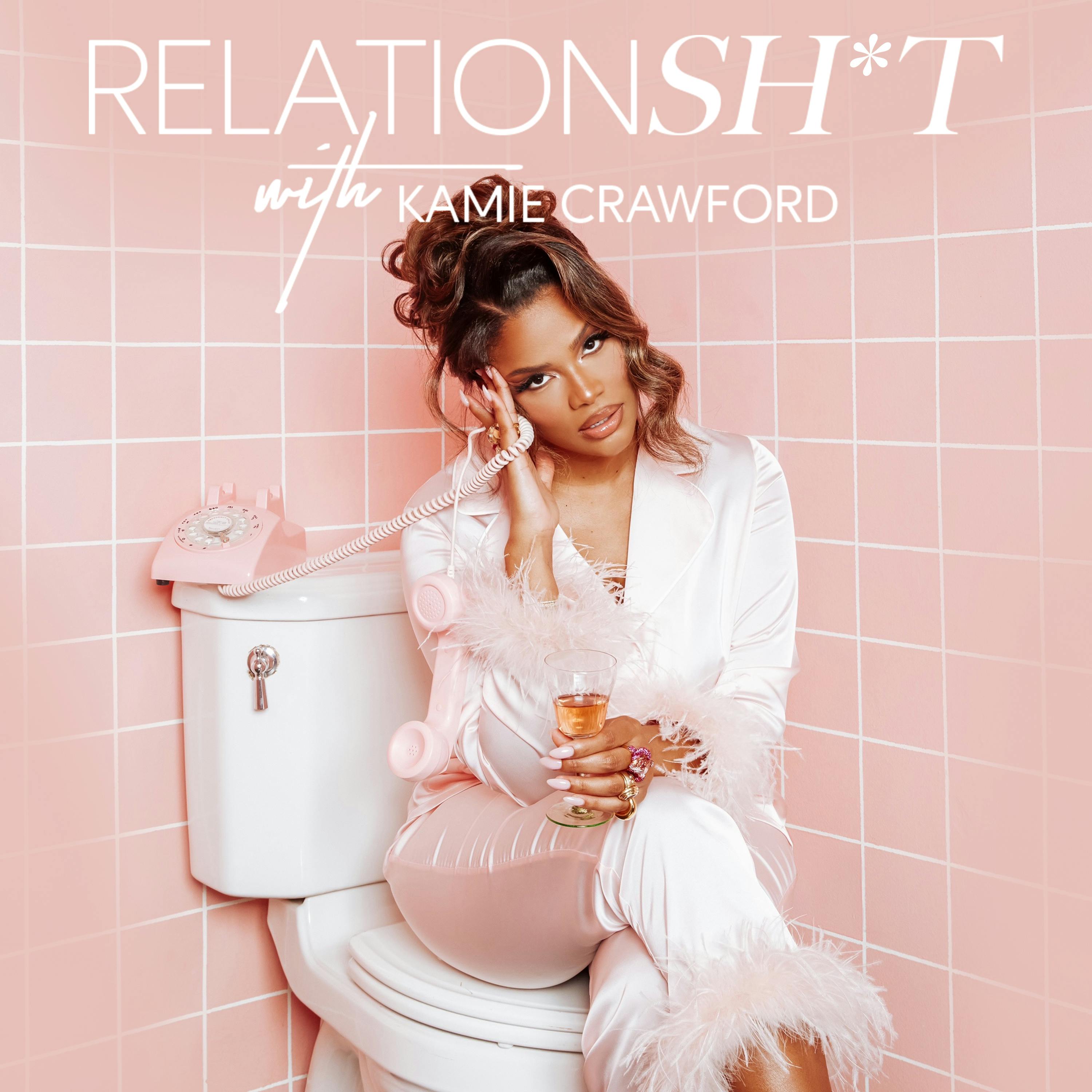
Relationsh*t with Kamie Crawford
Kamie Crawford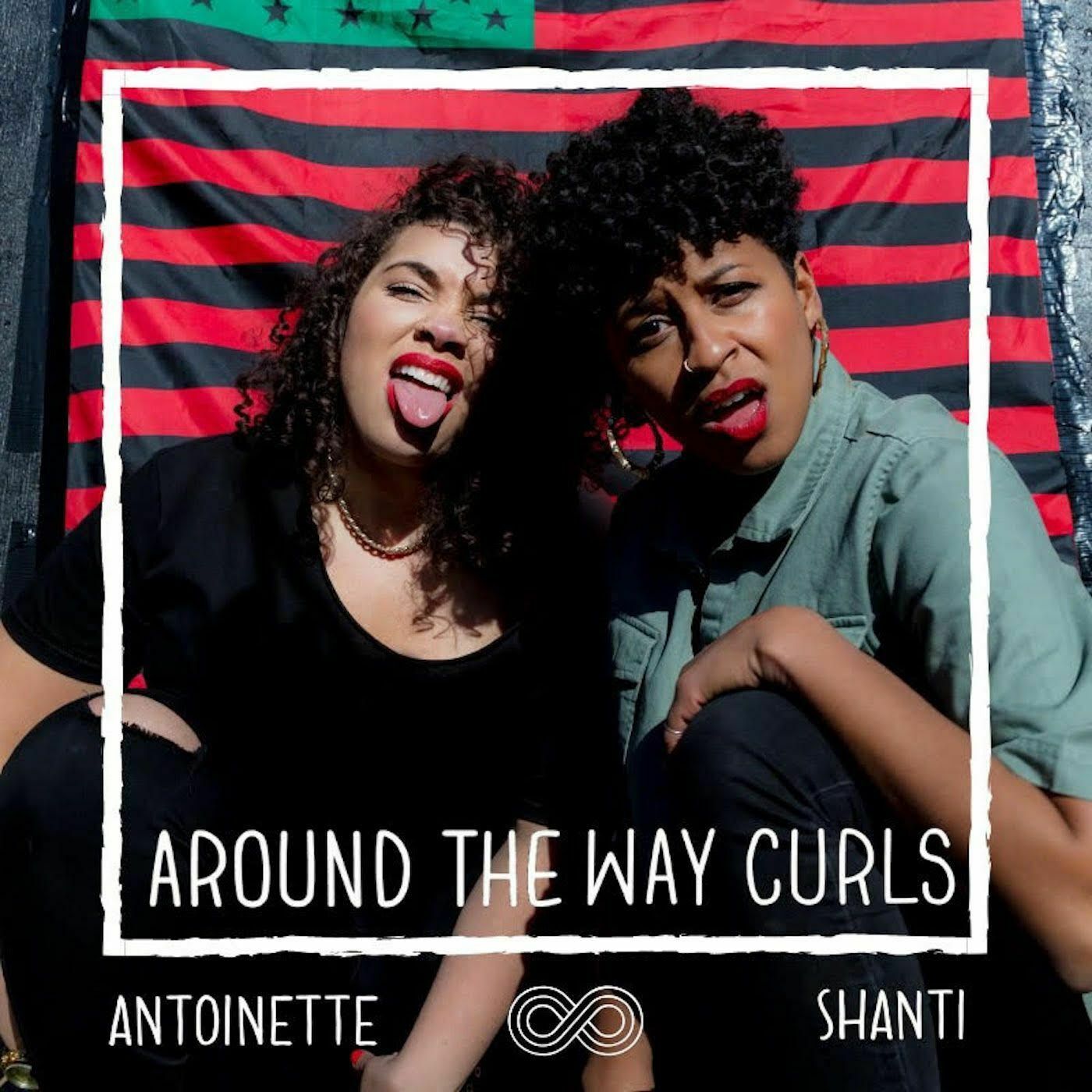
Around The Way Curls
Antoinette Lee & Shanti Mayers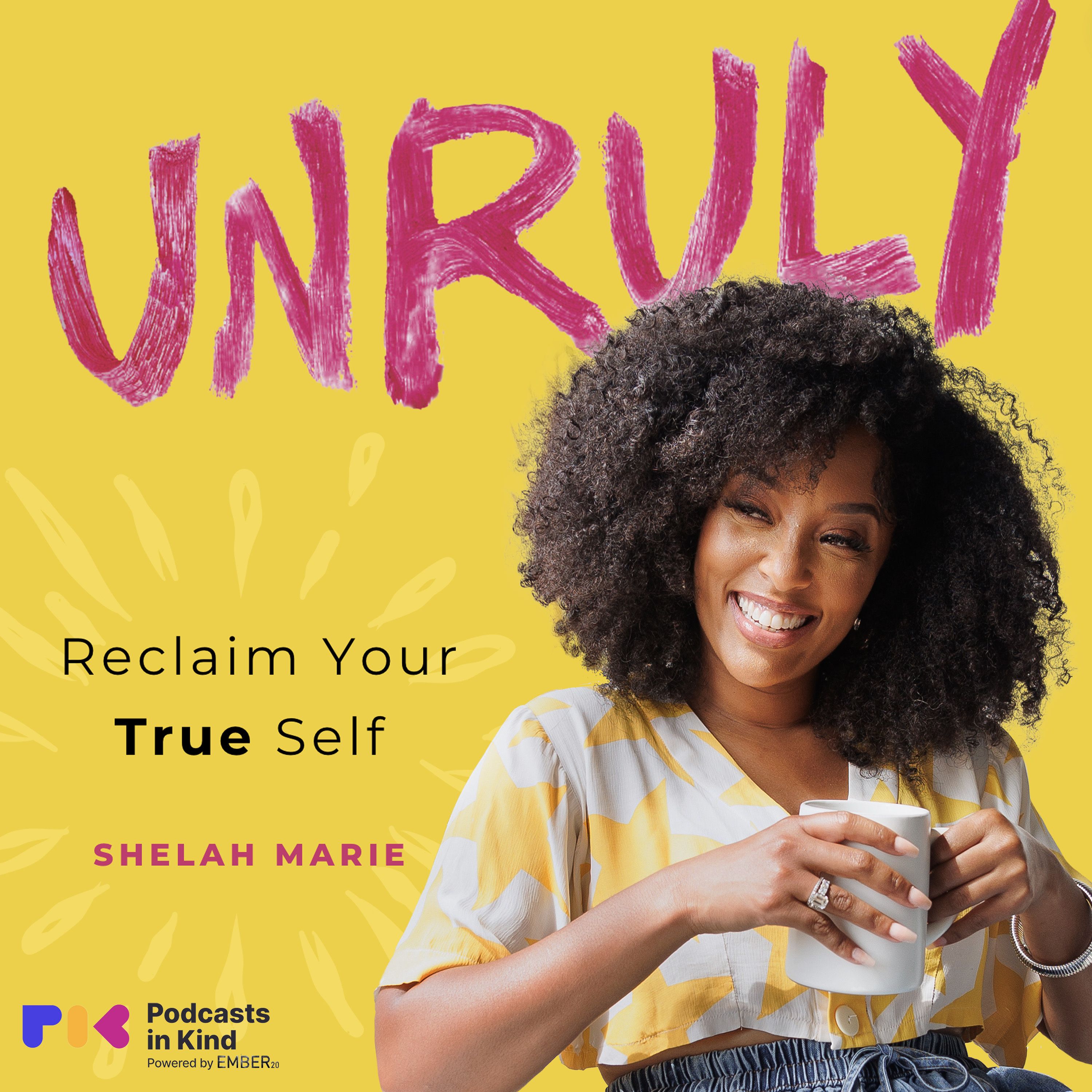
UNRULY WITH SHELAH MARIE
UNRULY WITH SHELAH MARIE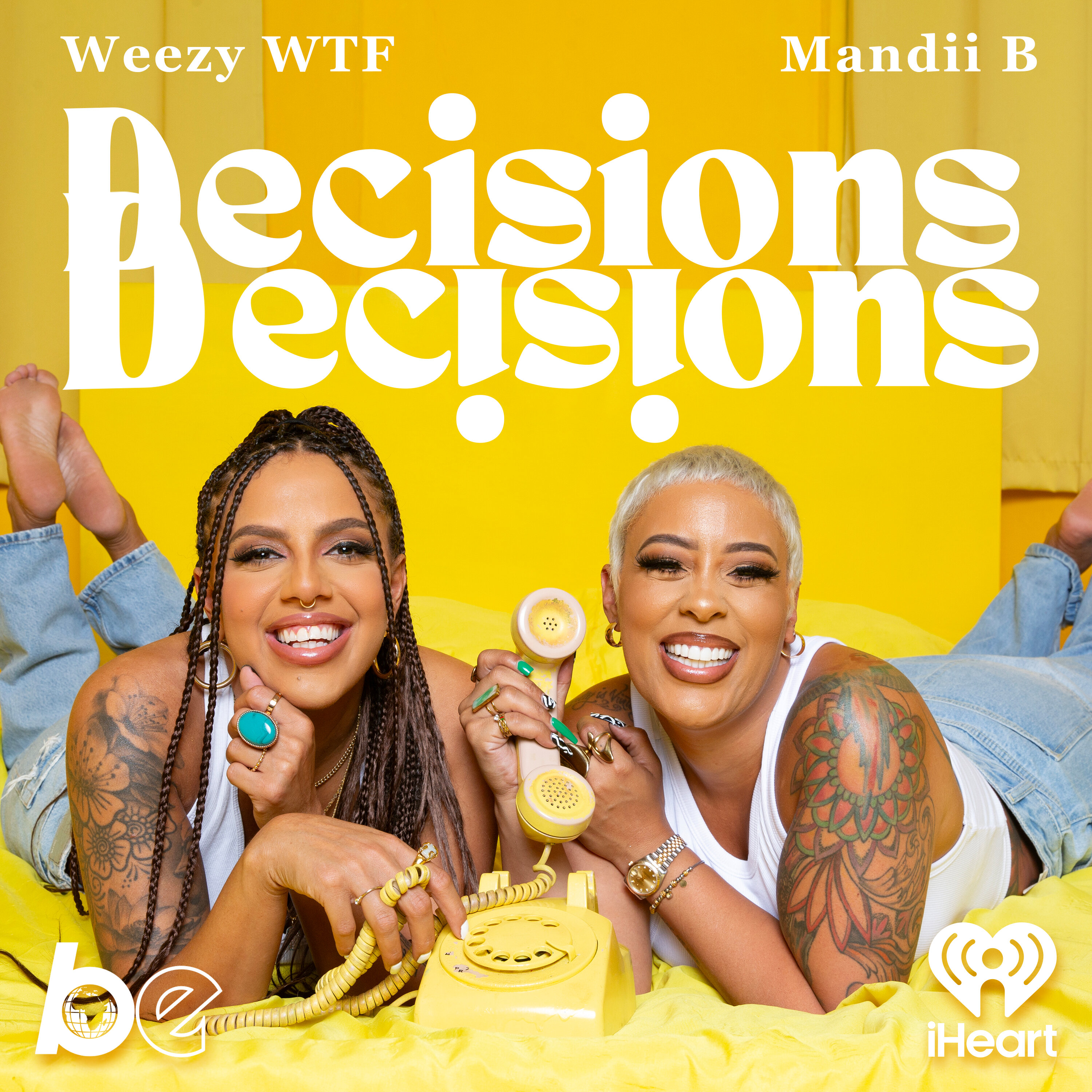
Decisions, Decisions
The Black Effect and iHeartPodcasts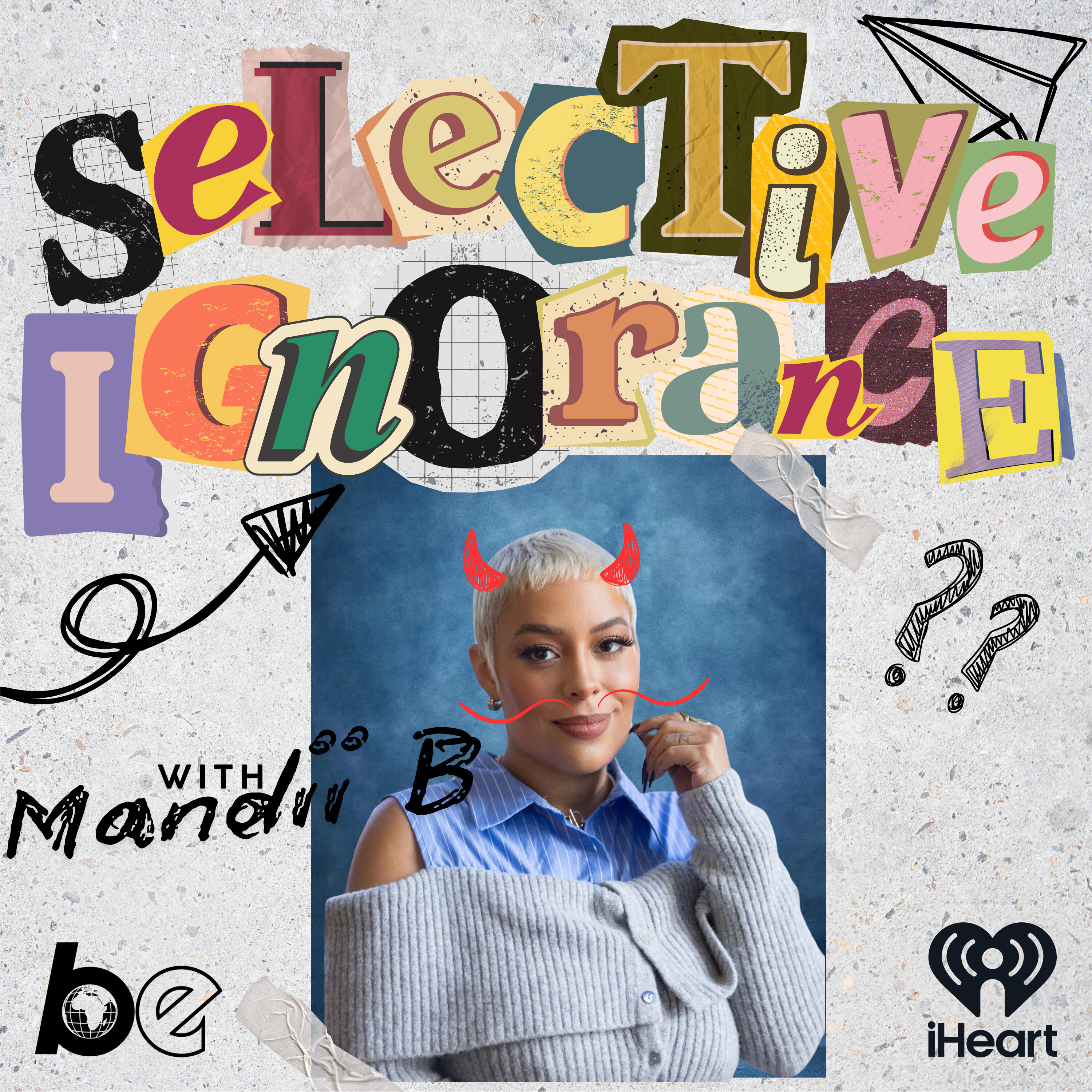
Selective Ignorance with Mandii B
The Black Effect and iHeartPodcasts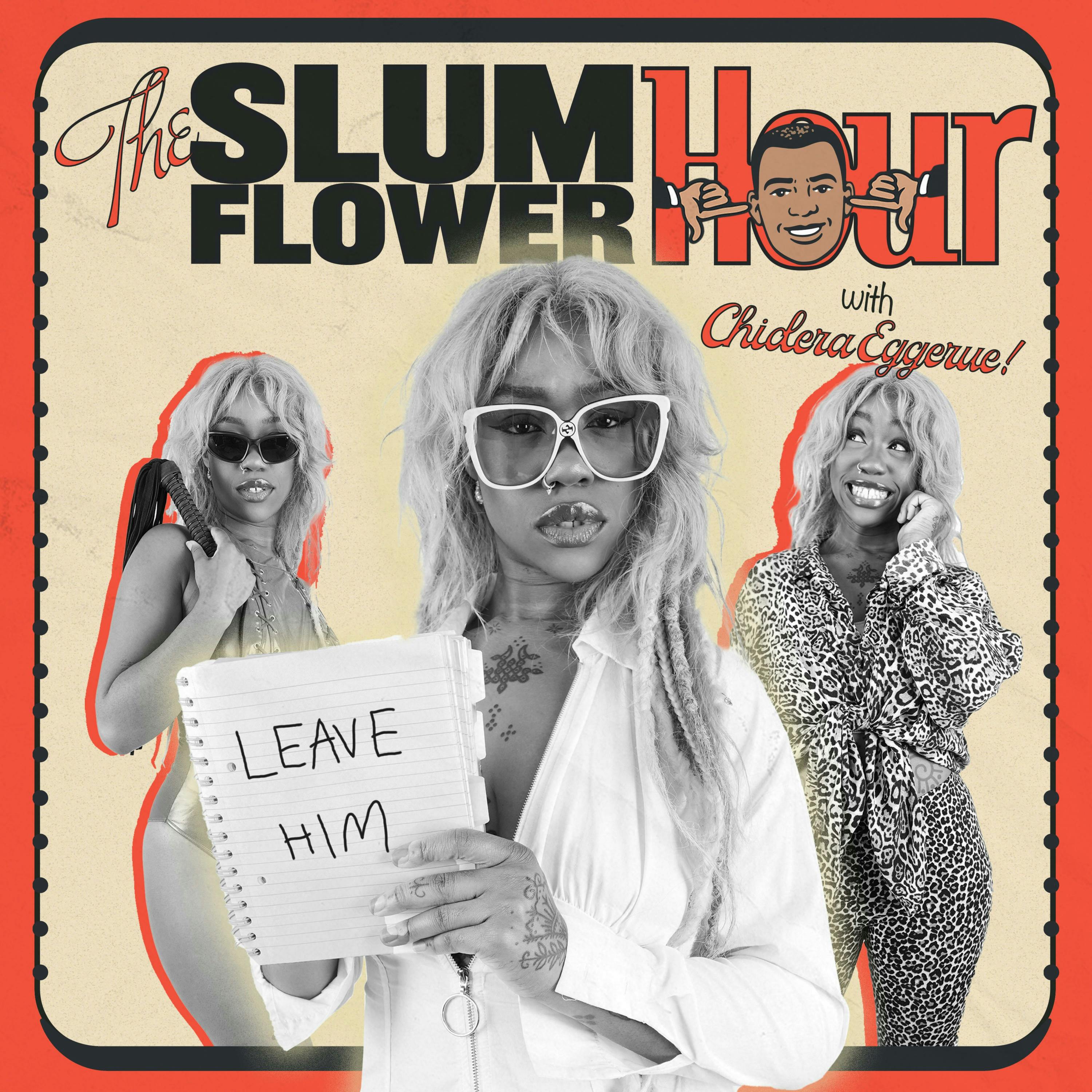
The Slumflower Hour
Chidera Eggerue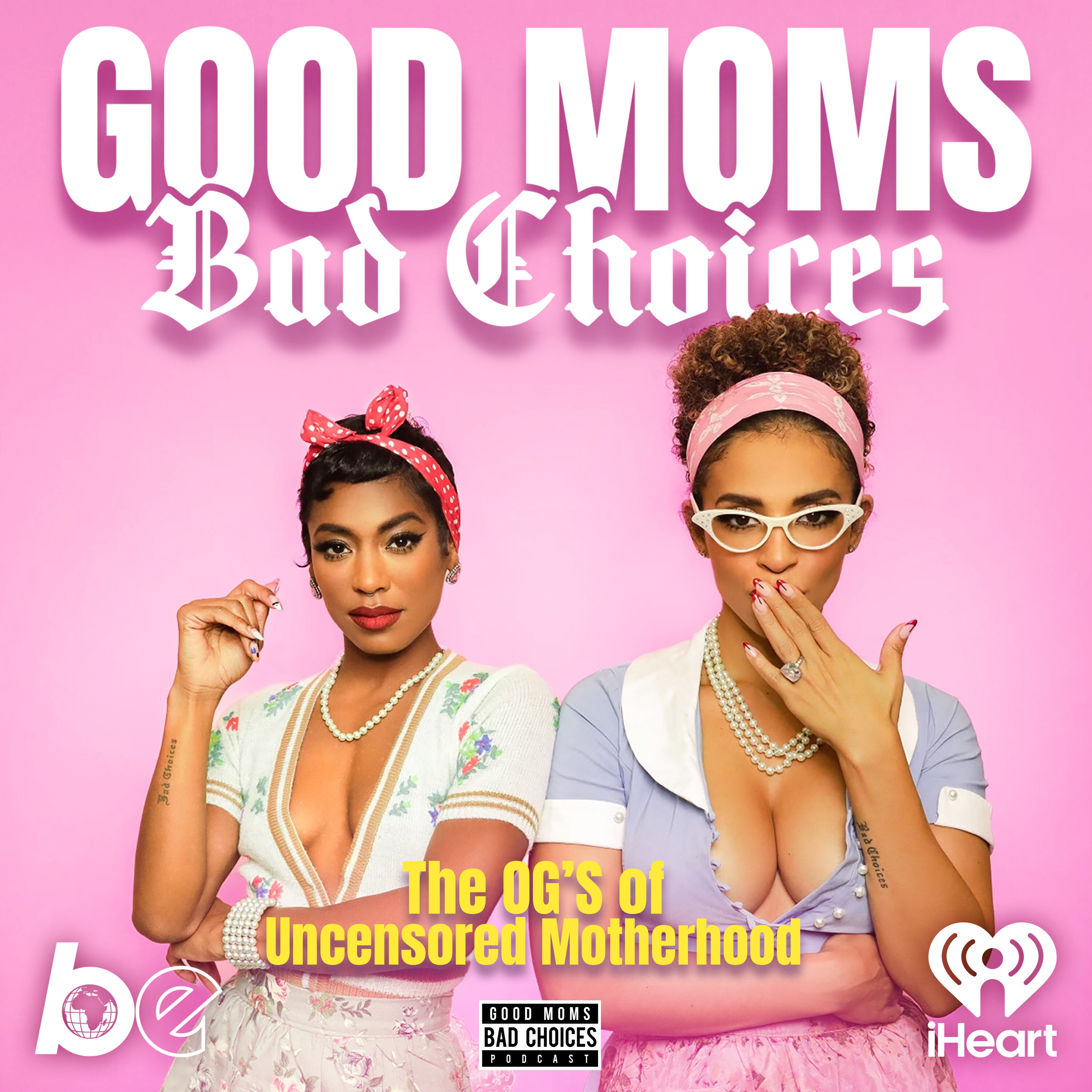
Good Moms Bad Choices
The Black Effect and iHeartPodcasts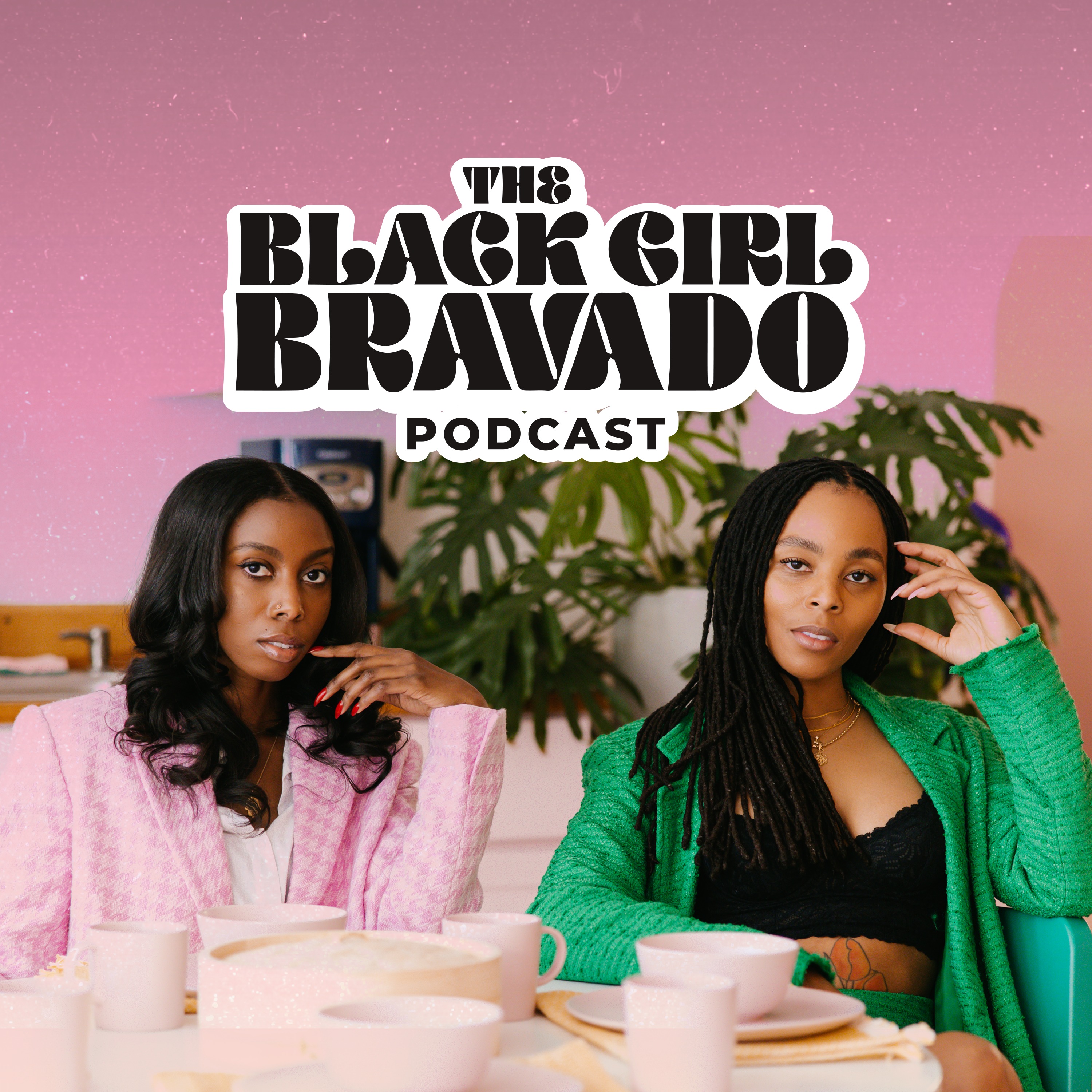
The Black Girl Bravado
Black Girl Bravado
Slay Girl Slay
Ashley Leggs
She's So Lucky
She's So LuckyUpstream
Upstream
SpeakEZ Black Renaissance Podcast
Qadry Harris, M. Div.
Bobo's Void
Bobo, Donavon and Mango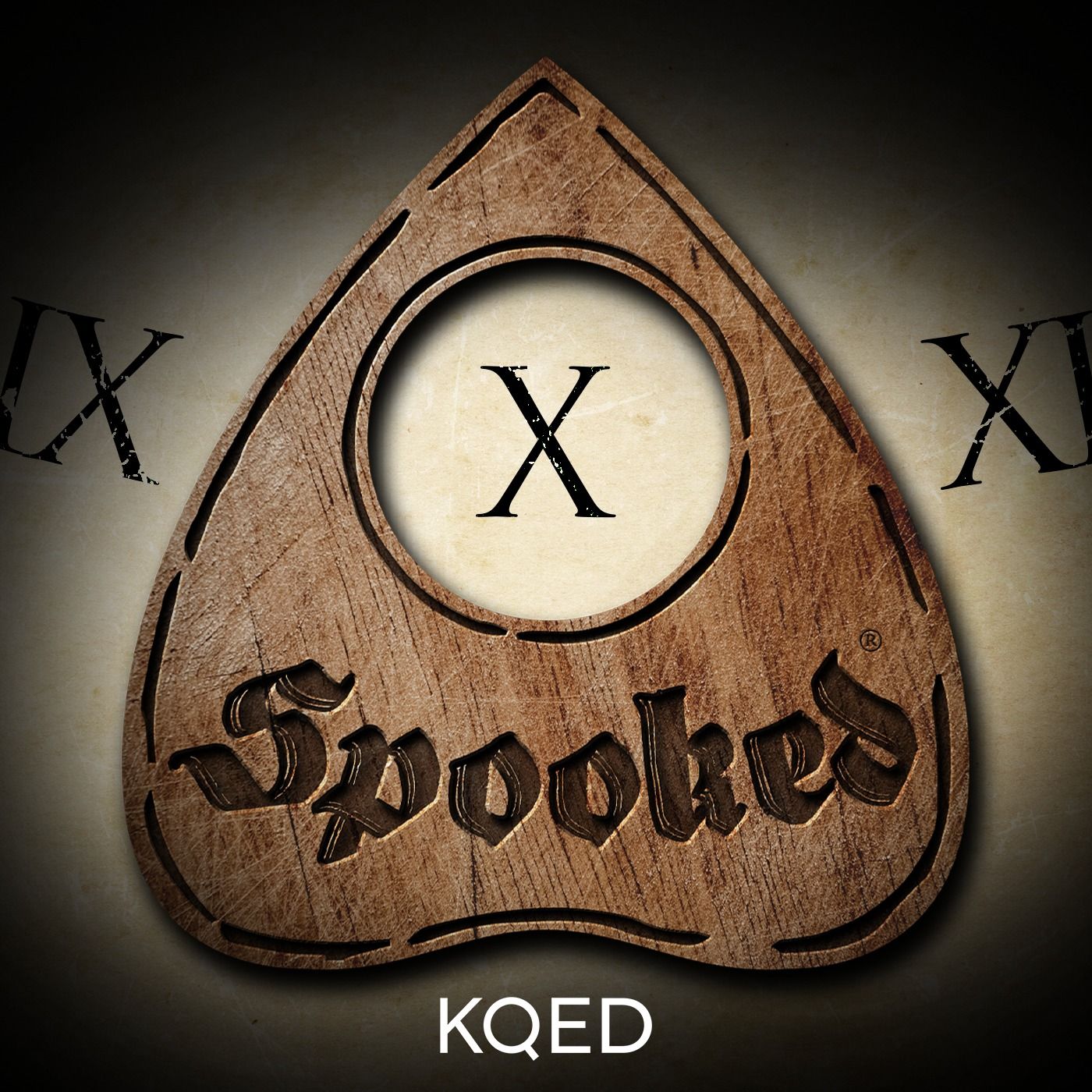
Spooked
KQED and Snap Studios
Caribbean Mystics
SpectreVision Radio
Magic in the United States
Magic in the United States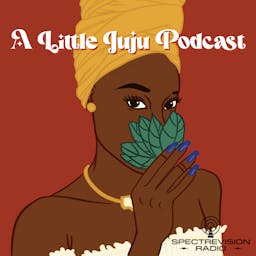
A Little Juju Podcast
SpectreVision Radio
Sensual Faith Podcast with Lyvonne Briggs
Lyvonne Briggs
Our Ancestors Were Messy
Nichole Hill
The Bankrupt Millionaire
Samia Burton
The Love Seat
Lauren Speed-Hamilton and Cameron Hamilton
CultureCon Uncut
Spotify Studios
Hold For Maintenance
Hold For Maintenance
